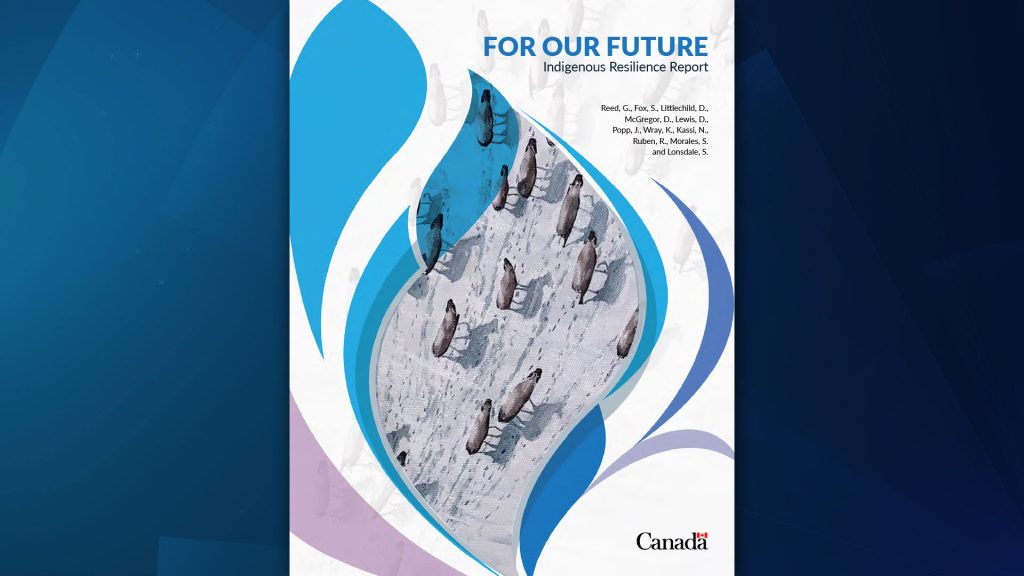
A new report says that climate change is a consequence of colonialism and the separation between people and the natural world.
For the Future: Indigenous Resilience Report says it is the first comprehensive report on climate change impacts that is written from the perspective of First Nations, Inuit and Métis people.
“Specific impacts experienced by First Nations, Inuit and Métis are discussed throughout this report but generally include observed changes in wildlife and species migrations, shifting water levels and more variable weather patterns,” says the report. The report was written by ten Indigenous people and one person who self-identifies as a settler.
The report also points to changing sea ice and increased intensity and duration of wildfires. Natural Resources Canada developed the report.
“Indigenous Peoples, including Indigenous Elders and knowledge keepers, have called for a re-evaluation of the framing of climate change towards one focused on how human values are at the root of the climate crisis: a world out of balance,” says the report.
Since the creation of the Intergovernmental Panel on Climate Change, or IPCC there have been some steps to include the Indigenous worldview alongside the scientific perspectives.
Martin Sommerkorn, one of the lead writers for the polar chapter of the IPCC spoke to APTN News for its podcast A Place That Thaws about the ways that scientists are bringing in Indigenous knowledge into reports on climate change.
Read more:
“We made several advances in the polar chapter and then also across the report to say we really need to consider knowledge systems more broadly when it comes to how we address climate change,” says Sommerkorn.
Sommerkorn put out a call to Indigenous scholars to give all the peer-reviewed and published material that spoke to climate change and Indigenous knowledge.
“We have a section on different knowledge systems and what that means and why it is a mandatory contribution to consider for responding to climate change,” he says.
Read more:
High Arctic relocation in the ‘50s still lingers with Inuit Elders
‘We can’t be on the ice safely’: Inuit hunters say climate change is changing their lives










